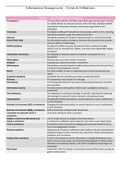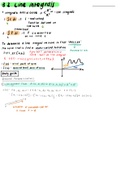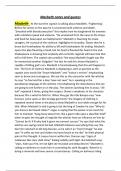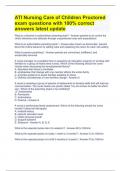AI → Intelligent machines
Big AI questions:
- Can we build machines that think?
- Can we build machines that learn?
- Can we build machines that are more intelligent than us?
- Can we build machines that are creative?
- Can we build machines that have emotions?
- Can we build machines that are conscious?
In the press you see a lot of dangerous sides of AI, implicit that we should fear AI.
AI experts warn the United Nations of a third revolution in warfare
With fully autonomous weapons that engage targets without human intervention
‘Once developed, they will permit armed conflict to be fought at a scale greater than
ever, and at timescales greater than humans can comprehend’
How safe can AI be?
On the one hand
Stephen Hawking says:
‘Ai could spell the end of the human race’
Elon Musk says:
‘it’s like summoning the demon’
On the other hand
Brett Kennedy says:
‘I have first-handed knowledge of how hard it is for us to make a robot that does
much of anything’
Alan Winfield says:
‘fears of future super intelligence robots - taking over the world – are greatly
exaggerated’
So very different views on this question, some people fear for AI machines and
others believe that this is exaggerated.
AI hype, what about machine learning
Machine learning gets more and more profit, seen in the example of David Harding,
Founder and CEO of Winton Capital, a top 10 hedge fund. In 1980 his investing
started and his profits increased especially the last years very fast.
“We’ve always been active in the machine learning community. I think there is some
new ground being broken, but I think the public debate about AI and machine
learning is nine parts hype to one part substance” (2018)
→ There is a lot of hype about AI, but machine learning has achieved more
Difficult is balancing, interests are composed/contradictory, they don’t align. And that
creates plenty of thing to worry about. ‘expect the unexpected’, otherwise you’re
limited in your output. Have a bit more trust in the machine
Harding’s idea was that finance could use science to identify and exploit
inefficiencies in the markets
→ the real outcome of what we have achieved is much less than what we’re hyped
about/think that we have achieved.
people are driven to look further and further back in time
, too much hype, too less achieved
Be very, very sceptical
Theodore Rosak: “AI’s record of barefaced public deception is unparalleled in the
annals of academic study”
→ AI researchers have been making bold claims since the late 1950s
→ AI’s progress has been much slower than expected
→ It’s easy to imagine full AI, hence easy to convince/scare people
What is Artificial Intelligence
- ‘the science and engineering of making intelligent machines’ – John McCarthy
- ‘the science of making machines do things that would require intelligence if
done by men’ – Marvin Minsky
- ‘the exciting new effort to make computers think.. machines with minds, in the
full and literal sense’ – John Haugeland
- ‘The art of creating machines that perform functions that require intelligence
when performed by people’ – Ray Kurzweil
Artificial intelligence = the study and construction of agent programs that perform
well in a given environment, for a given agent architecture
(the ability of a machine to think human-like and to perform tasks that require human
intelligence, such as decision making, translation, reacting in a “correct” way to
unexpected things that happen)
Artificial
If machine intelligence is artificial, what is ‘real’ intelligence?
Must real intelligence be made of biological stuff → carbon/protoplasm chauvinism
What if we work out how to engineer biological agents?
Must real intelligence be the product of biological evolution?
Should nature be the only source of ‘real’ intelligence? → what doe we mean by
nature?
What if we work out how to evolve biological agents?
- By artificial, we mean non-biological. It’s all about the kind of stuff we use to
build an agent.
- Might mean constructed by humans. It’s all about the origin of the agent,
and who designed and built it.
Intelligence
- ‘few concepts in psychology have received more devoted attention and few
have resisted classification so thoroughly’ – A.S. Reber
- ‘intelligence is the computational part of the ability to achieve goals in
the world. Varying kinds and degrees of intelligence occur in people,
many animals and some machines’ – John McCarthy
- In context of AI: ‘exhibiting interesting behaviour’, interesting behaviour can be
found in ants, termites, fish and most other animals. But these animals aren’t
considered intelligent in the everyday sense of the world.
Solving a problem in an interesting way, how is the problem solved and how
can we implement that in a machine?
It’s not clear what we mean by intelligence, different opinions
Is it measurable with an IQ-test?
Is catching a mouse a sort of intelligence? → ability to achieve goals







